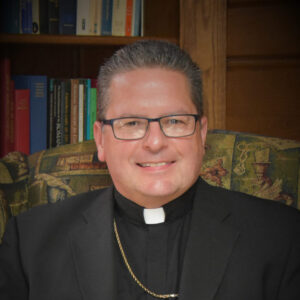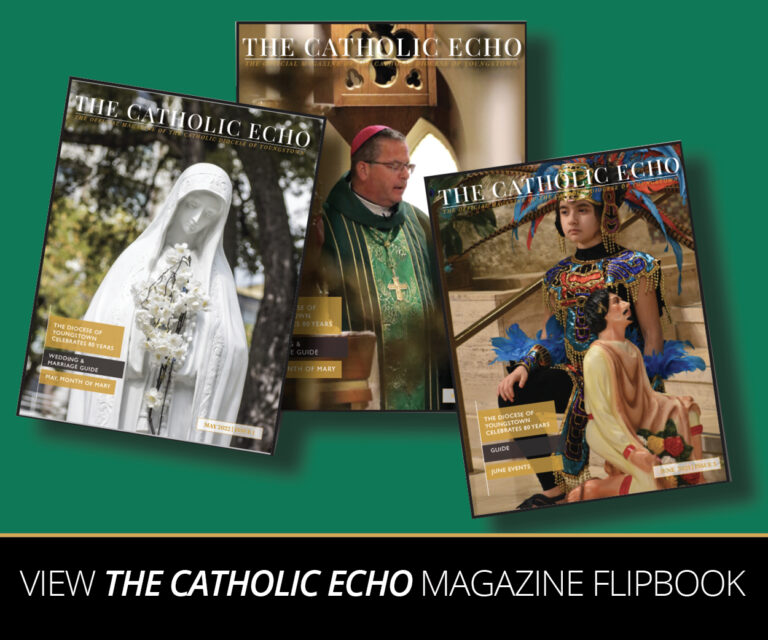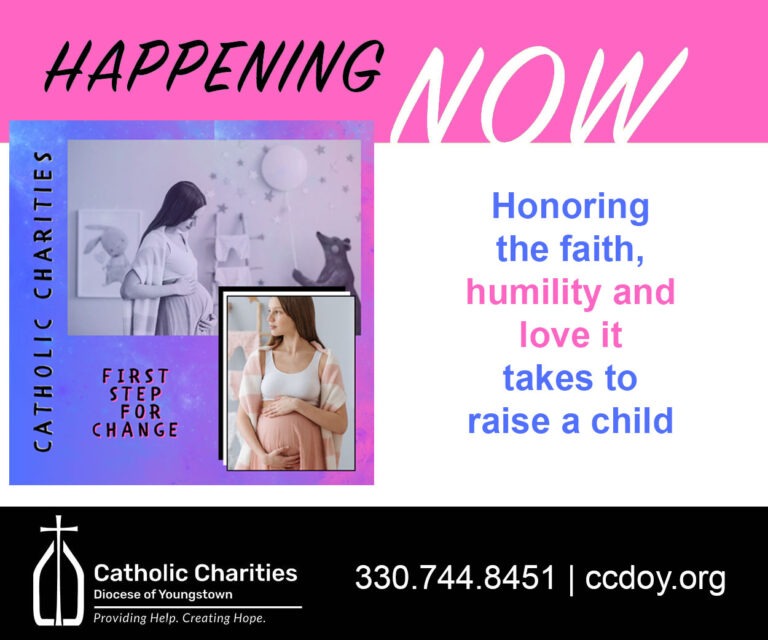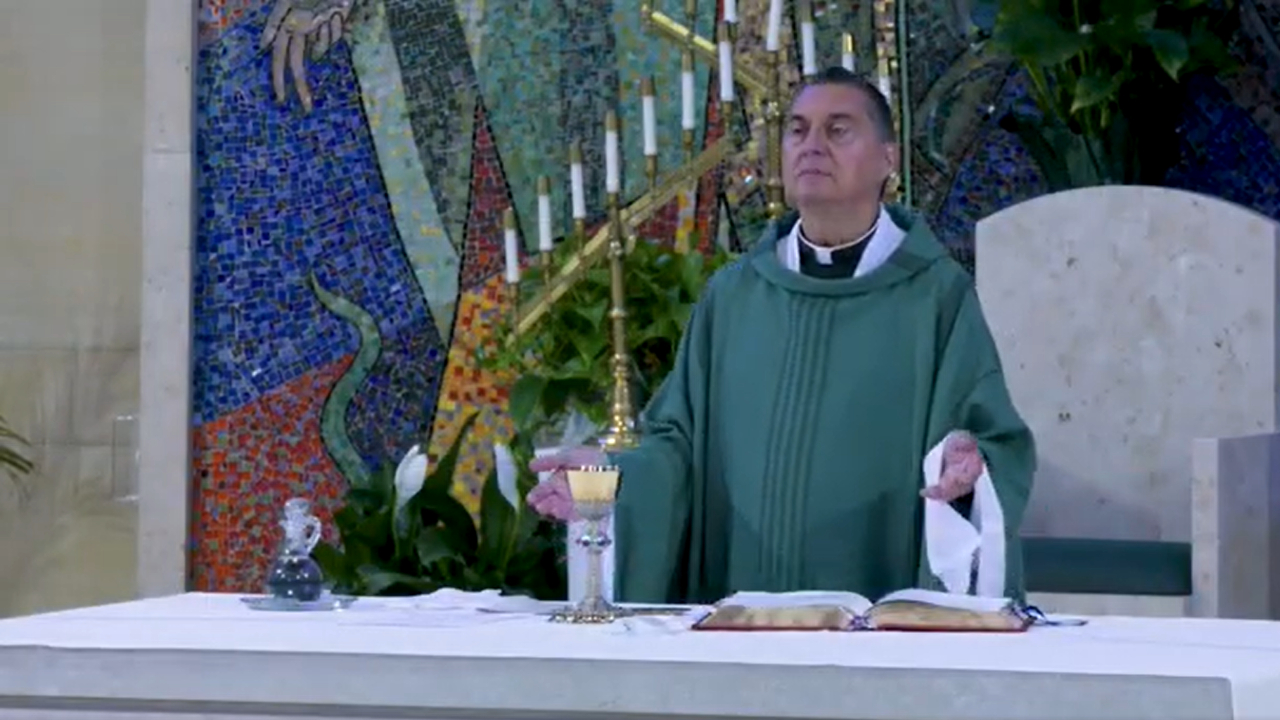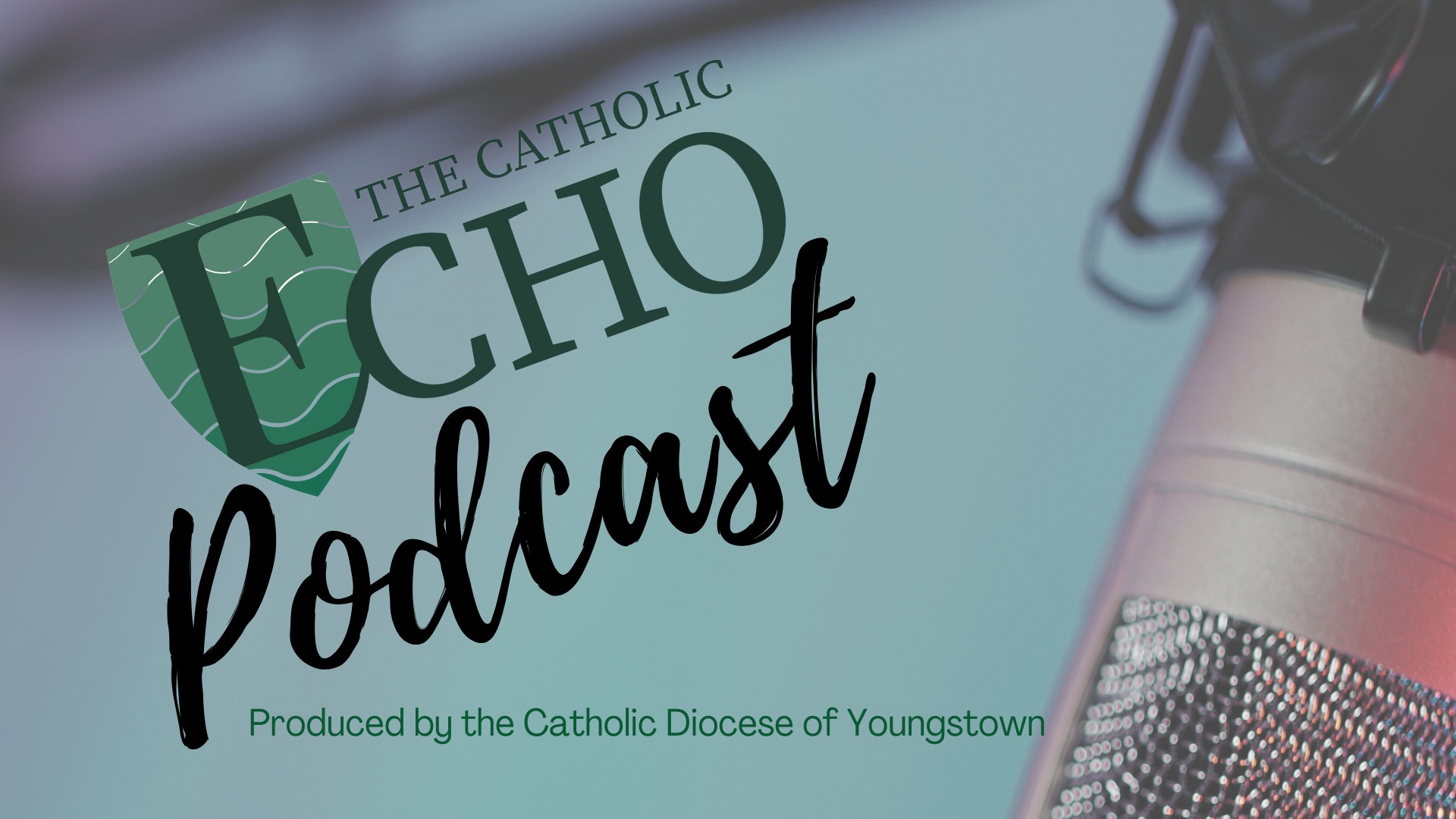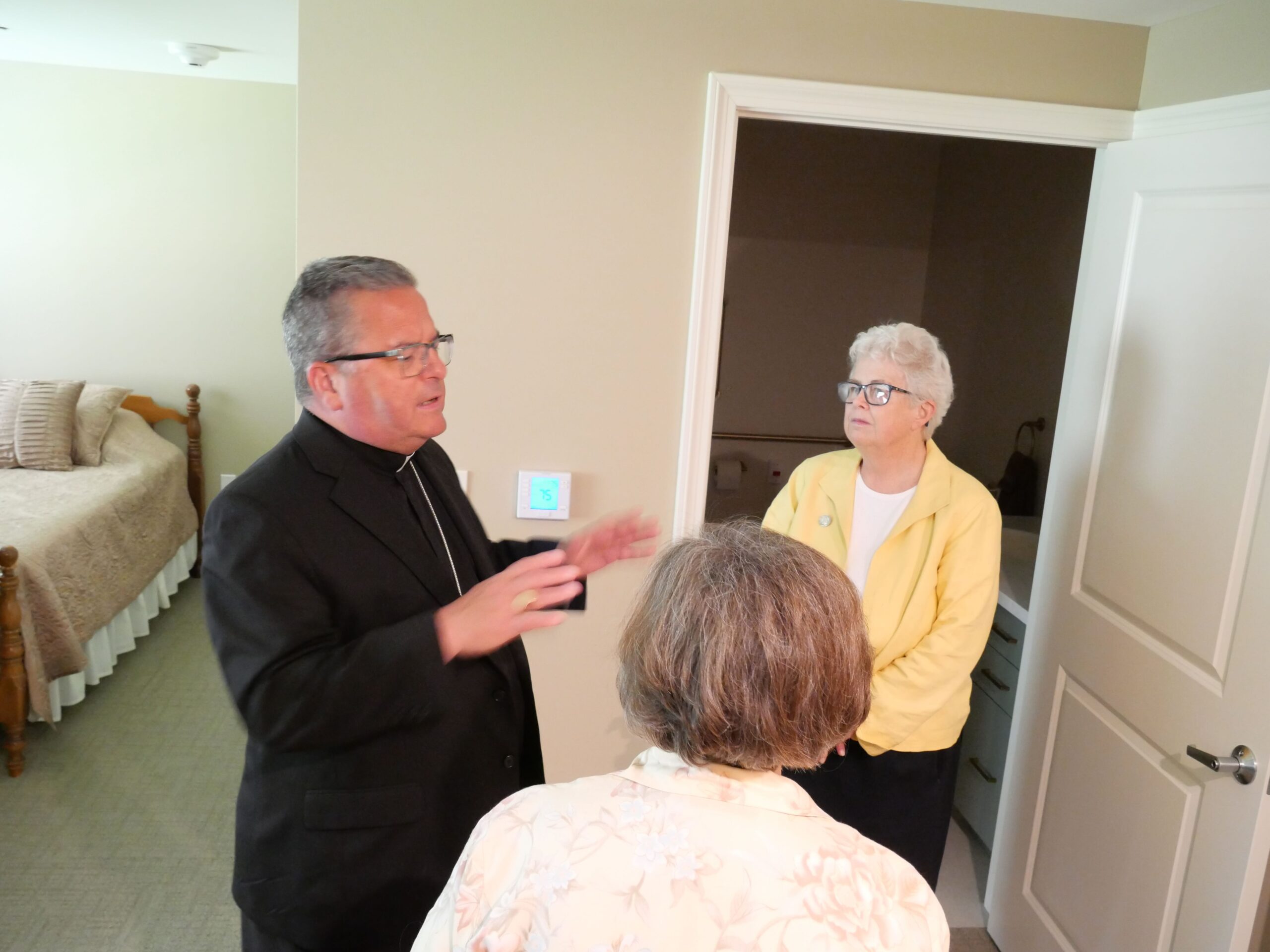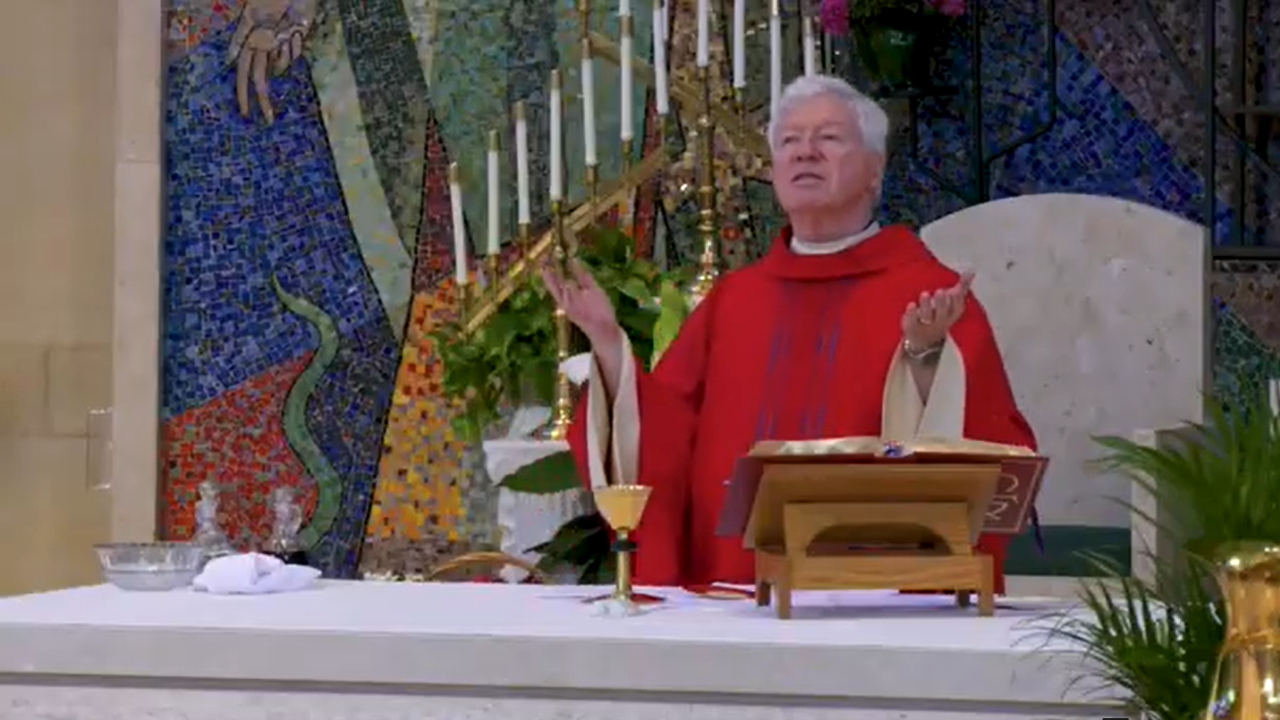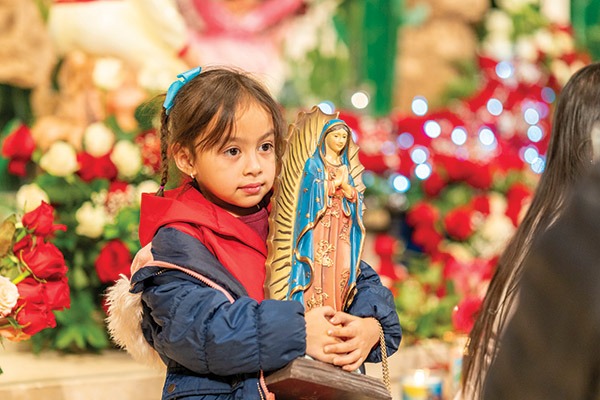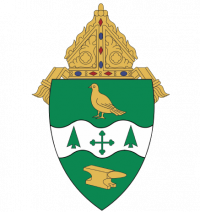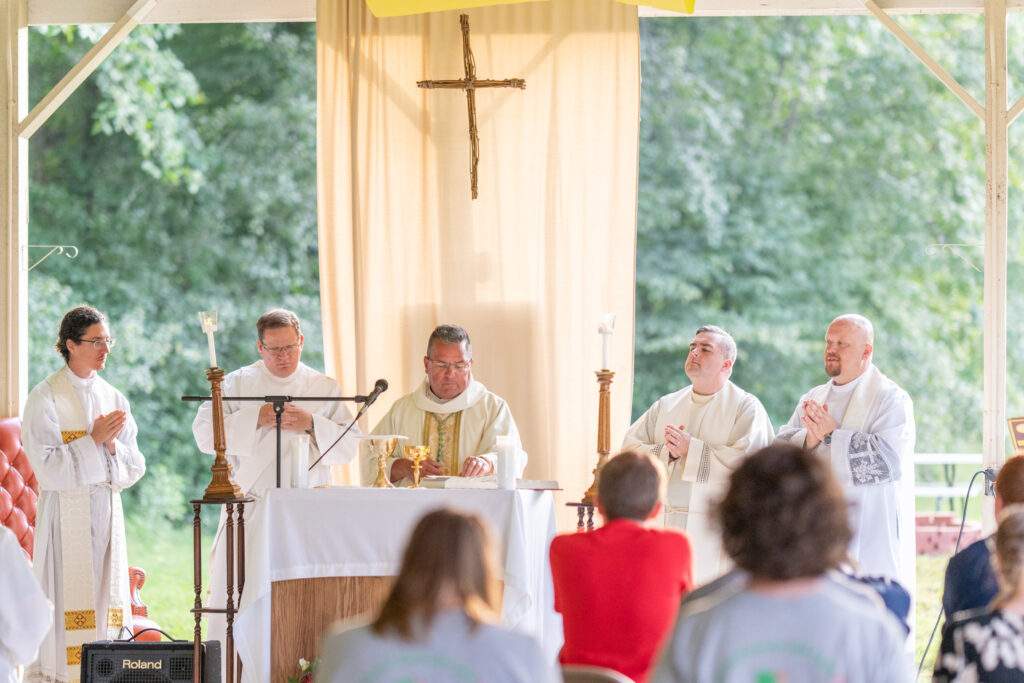
Since the beginning of his pontificate, Pope Francis has utilized a series of words to invite us deeper into the faith—to become not only better disciples but also more loving brothers and sisters. Some of these words include “poor,” “peripheries,” “mission,” “synodality” and “accompaniment.” At the heart of these is the word “encounter.”
In The Joy of the Gospel, Pope Francis writes, “I invite all Christians, everywhere, at this very moment, to a renewed personal encounter with Jesus Christ, or at least an openness to letting him encounter them; I ask all of you to do this unfailingly each day” (#3).
The dictionary defines “encounter” as “an unexpected or casual meeting with someone or something.” What is interesting about this definition is not the obvious connection with someone or something but rather the “unexpected” sense of it, which suggests that these meetings are not always planned. Of course, the unexpected nature of these moments could engender both surprise and shock—not to mention some intangible takeaway that could make one or both parties stronger and wiser.
The word “encounter” does not always have a positive connotation. For example, another definition for this word understands it as “being faced with something difficult or hostile.” I suppose we all have had confrontations like this that usually involve some kind of conflict. Given the discomfort, these moments are ones that many choose to avoid. And yet, in the same document, Pope Francis states, “Conflict cannot be ignored or concealed. It has to be faced. But if we remain trapped in conflict, we lose our perspective, our horizons shrink and reality itself begins to fall apart. In the midst of conflict, we lose our sense of the profound unity of reality” (#226).
The Holy Father is inviting us to embrace encounter, whether it is comfortable or uncomfortable, because within all these moments lies the opportunity to listen, learn and see the face of Christ in others.
When I was sent to Rome to formally begin my theological studies for the priesthood, I had to encounter a whole new culture and language. Before I boarded the jet, I remember one of my formators, a priest, saying, “Dave, Rome is going to be different. It is not anything good or bad, just different.” While the four-year experience was different, I cannot begin to count the graces and blessings of that time. The lesson I learned is that, inevitably, when we embrace those challenging encounters filled with uncertainty and discomfort, we mature more fully.
Over the last few months, I have been intentionally focusing on this experience of encounter to the extent that each day I pray that I may encounter Christ especially in those I meet. Essentially, I have been asking God to open my eyes to his face and heart in others, most notably those who are different.
Sadly, we live in a time when there is great selectivity about who or what we seek to encounter. What is more, there appears to be a growing intolerance and refusal to encounter those who think differently from us. This posture is not limited to politics, but it includes everyday life in the Church, with labels like “conservative” or “liberal,” “traditional” or “progressive,” “pre-Vatican II” or “post-Vatican II.” This branding, be it intentional or unintentional, becomes in many ways a barrier to encounter. We need not be condemned to the differences that are ours. If anything, we need to embrace these encounters in dialogue and accompany one another, not as enemies or adversaries, but as brothers and sisters in Christ.
Pope Francis shines the spotlight on accompaniment in The Joy of the Gospel: To accompany is to listen. He writes, “One who accompanies others has to realize that each person’s situation before God and their life in grace are mysteries which no one can fully know from without” (#172). In other words, we need to encounter one another and, in this experience, come to know and love one another. Despite our differences, we are all in this together and there is nothing Jesus desires for us more than “That all may be one.”
Desde el comienzo de su pontificado, el Papa Francisco ha usado una serie de palabras para invitarnos a profundizar en la fe, para convertirnos no sólo en mejores discípulos sino también en hermanos y hermanas más amorosos. Algunas de estas palabras incluyen “pobres”, “periferias”, “misión”, “sinodalidad” y “acompañamiento.” En el corazón de estas está la palabra “encuentro.”
En La Alegría del Evangelio, el Papa Francisco escribe, “Invito a cada cristiano, en cualquier lugar y situación en que se encuentre, a renovar ahora mismo su encuentro personal con Jesucristo o, al menos, a tomar la decisión de dejarse encontrar por Él, de intentarlo cada día sin Descanso” (#3).
El diccionario define “encuentro” como una “reunión inesperada o casual con alguien o algo”. Lo interesante de esta definición no es la conexión obvia con alguien o algo, sino más bien el sentido “inesperado” del mismo, que sugiere que estos encuentros no siempre son planeados. Por supuesto, la naturaleza inesperada de estos momentos podría generar sorpresa y conmoción, sin mencionar alguna conclusión intangible que podría hacer a una o ambas partes más fuertes y sabias.
La palabra “encuentro” no siempre tiene una connotación positiva. Por ejemplo, otra definición de esta palabra comprende que es “estar enfrentado a algo difícil u hostil.” Supongo que todos tenemos enfrentamientos como estos que suelen implicar algún tipo de conflicto. Dada la incomodidad, estos momentos son los que muchos optan por evitar. Y sin embargo en el mismo documento, el Papa Francisco afirma, “El conflicto no puede ser ignorado o disimulado. Ha de ser asumido. Pero si quedamos atrapados en él, perdemos perspectivas, los horizontes se limitan y la realidad misma queda fragmentada. Cuando nos detenemos en la coyuntura conflictiva, perdemos el sentido de la unidad profunda de la realidad” (#226).
El Santo Padre nos invita a abrazar el encuentro, ya sea cómodo o incómodo, porque en todos estos momentos está la oportunidad de escuchar, aprender y ver el rostro de Cristo en otros.
Cuando fui enviado a Roma para comenzar formalmente mis estudios teológicos para el sacerdocio, tuve un encuentro con una nueva cultura y lenguaje. Antes de abordar el avión recordé que uno de mis formadores, un sacerdote, me dijo, “Dave, Roma va a ser diferente. No es nada ni bueno ni malo, solamente diferente.” Si bien la experiencia de cuatro años fue diferente, no puedo comenzar a contar las gracias y bendiciones de ese tiempo. La lección que aprendí, inevitablemente, es que cuando enfrentamos esos encuentros desafiantes llenos de incertidumbre e incomodidad, maduramos más plenamente.
Durante los últimos meses, me he centrado intencionalmente en esta experiencia de encuentro hasta el punto de que cada día oro para poder encontrar a Cristo, especialmente en aquellos con quienes me encuentro. Esencialmente, le he estado pidiendo a Dios que abra mis ojos a su rostro y a su corazón en los demás, especialmente en aquellos que son diferentes.
Lamentablemente vivimos en una época donde hay gran selectividad sobre con quién o qué buscamos encontrar. Es más, parece haber una creciente intolerancia y rechazo a encontrar a quienes piensan diferente a nosotros. Esta postura no está limitada a la política, pero incluye la vida diaria de la Iglesia, con etiquetas como “conservadora” o “liberal”, “tradicional” o “progresiva,” “pre-Vaticano II” o “Pos-Vaticano II.”
Esta marca, ya sea intencional o no, se convierte en muchos sentidos en una barrera al encuentro. No necesitamos estar condenados a las diferencias que son nuestras. En todo caso debemos abrazar estos encuentros en el diálogo y acompañarnos unos a otros, no como enemigos o adversarios sino que como hermanos y hermanas en Cristo. El Papa Francisco destaca el acompañamiento en La Alegría del Evangelio: Acompañar, es escuchar. Él escribe, “El acompañante sabe reconocer que la situación de cada sujeto ante Dios y su vida en gracia es un misterio que nadie puede conocer plenamente desde afuera” (#172). En otras palabras, necesitamos encontrarnos unos con otros y, en esta experiencia, llegar a conocernos y amarnos unos a otros. A pesar de nuestras diferencias, todos estamos juntos en esto y no hay nada que Jesús desee más para nosotros que “Todos sean uno.”
